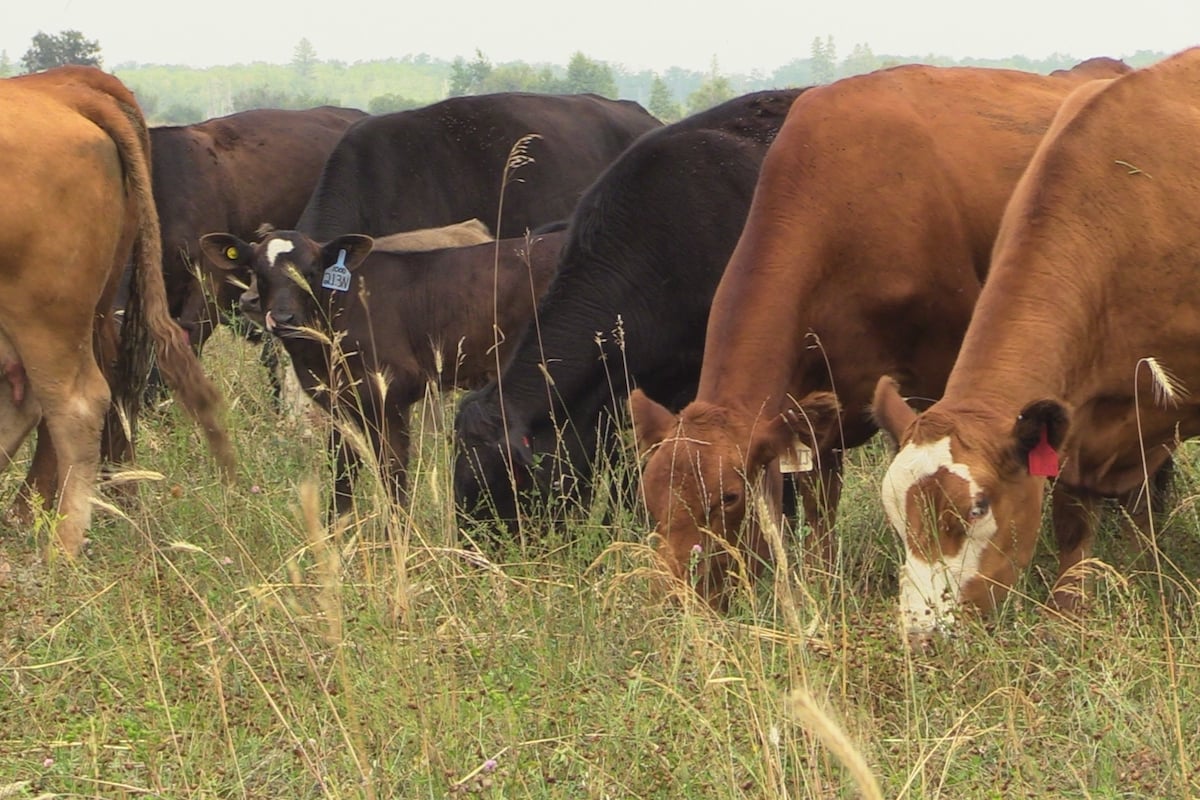The Canadian Wheat Board’s plebiscite on the marketing of Prairie wheat and barley finds just over three out of five voting Prairie farmers prefer a single marketing desk for wheat — but only about half of voters want the same status quo for barley.
The CWB’s chairman and other supporters of the single desk are now calling on the federal government to respect the wishes of voting farmers, but the government has dismissed the vote itself as an “expensive survey” it plans to ignore.
By the numbers
Read Also

Klassen: Feeder market softens on weaker demand
For the week ending October 25, Western Canadian yearling markets traded steady to $10/cwt below prices from the previous week….
- A total of 38,261 farmers submitted mail-in ballots in the plebiscite, for a participation rate of 56 per cent, which the CWB noted is “on par with the last three federal elections and higher than many municipal and provincial elections.”
- Out of the total ballot envelopes submitted (before removal of invalid ballots), 25,671 were submitted by wheat growers, 1,033 by barley growers and 11,359 by growers of both wheat and barley.
- According to plebiscite co-ordinator MNP, the participation rate for returned ballots was 56 per cent (55 per cent of those who grew wheat, 47 per cent of those who grew barley, and 60 per cent of those who grew both).
- Among 36,823 eligible and unspoiled wheat growers’ ballots, 22,764, or 62 per cent, agreed with the statement “I wish to maintain the ability to market all wheat, with the continuing exception of feed wheat sold domestically, through the CWB single-desk system.” The remaining 14,059 voted their wishes “to remove the single-desk marketing system from the CWB and sell all wheat through an open market system.”
- Out of the 12,297 eligible and unspoiled barley growers’ ballots, 6,283, or 51 per cent, called “to maintain the ability to market all barley, both malting/food, with the continuing exception of feed barley sold domestically, through the CWB single-desk system.” The other 6,014 called “to remove the single-desk marketing system from the CWB and sell all barley through an open-market system.”
CWB chairman Allen Oberg, a farmer at Forestburg in northeastern Alberta, said in a release that the plebiscite results show the federal government is out of touch with farmers.
“For months, (Agriculture Minister Gerry) Ritz has been claiming that the recent federal election was a mandate for the government to dismantle the CWB,” he said Monday following the release of the vote count. “Now we know otherwise. There is no mandate from farmers to strip away their marketing power.
“We will not sit back and watch this government steamroll over farmers. We are going to stand our ground and fight for farmers,” Oberg said, though the CWB’s release did not specifically say what the board will do.
The government he said, “must now acknowledge this mandate from farmers and respect this decision.”
Ritz, however, reiterated in a statement Monday that “no expensive survey can trump the individual right of farmers to market their own grain.”
The government has stated its plans to shut down the CWB’s single marketing desks by August next year. Once the Prairie wheat and barley markets are deregulated, Ritz said Monday, “every farmer will have the ability to choose how to market their grain, whether it’s individually or through a voluntary pooling entity.
“Let me repeat: every western Canadian grain farmer will have the right to choose how they market their grain just like farmers in the rest of Canada and around the world.”
“Meaningless”
Response from farmer groups Monday to the plebiscite’s results ran along predictable rails.
National Farmers Union president Terry Boehm said in a release that the plebiscite’s message to Ritz is “crystal clear. It is absolutely necessary that he respect the wishes of the majority of western grain farmers, and abandon his plans to eliminate the single desk.”
In a release from a separate Prairie group, the Canadian Wheat Board Alliance, Alberta farmer Ken Larsen said farmers voting in “such high numbers is a strong message in itself” given what he called an “ongoing campaign of misinformation and bullying — including efforts by Canada¿s agriculture minister to discourage farmers from voting.”
A pro-deregulation group, the Western Canadian Wheat Growers Association, which had urged farmers to boycott the vote, criticized the vote for its “low turnout.”
“We urge the federal government to ignore this meaningless survey and move full speed ahead toward giving us our grain marketing freedom,” association president Kevin Bender said in a release Monday.
Farmer Stephen Vandervalk, president of the Grain Growers of Canada, further criticized the vote as a waste of time and resources, given the government’s plans.
“It is unfortunate that a narrow majority on the board of the CWB continues to refuse to let their management team get to work on a new business model, while according to their own survey released today, over 20,000 farmers are looking for marketing freedom,” he said.
“Slap in face”
Manitoba Premier Greg Selinger, in campaign mode ahead of an Oct. 4 election in the CWB’s home province, also weighed in on the plebiscite’s results Monday.
“Farmers have voted clearly to preserve the single-desk marketing system,” he said in a release. “Dismantling the wheat board would be a slap in the face of Prairie farmers and a risk to jobs and our economy.”
Selinger’s release also took a jab at rival Hugh McFadyen, leader of the opposition Progressive Conservatives, who’s on record in 2006 as urging Prime Minister Stephen Harper to hold a farmer plebiscite before making any changes to the board’s mandate.
But McFadyen said in June this year that the future of the CWB “was decided by Manitobans and Canadians” in the previous month’s federal election.
















